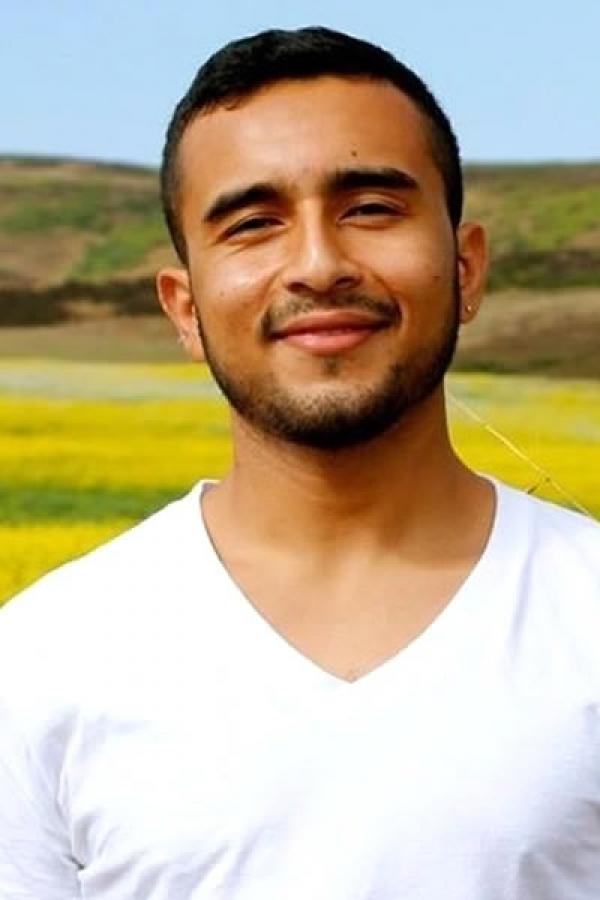Javier Zamora

Photo by Ana Ruth Zamora
Bio
Javier Zamora was born in La Herradura, El Salvador, in 1990. At the age of nine he migrated to the United States to be reunited with his parents. Zamora holds a BA from the University of California, Berkeley, where he studied and taught in June Jordan's Poetry for the People; and an MFA from New York University. He is the recipient of scholarships to Bread Loaf, Frost Place, Napa Valley, Squaw Valley, and VONA Writer's Conferences; and fellowships from CantoMundo and Colgate University where he is the Olive B. O'Connor fellow. His poems also appear in Best New Poets 2013, Indiana Review, Narrative, Ploughshares, Poet Lore, Theatre Under My Skin (Kalina Press: El Salvador), and elsewhere. Zamora has had his work recognized with a Meridian Editor's Prize, CONSEQUENCE Poetry Prize, and the Organic Weapon Arts Chapbook Contest.
See "Art Talk with Poet Javier Zamora"
Art Talk with Poet Javier Zamora
Author's Statement
I was born in La Herradura, a small fishing town in El Salvador. Its name means horseshoe for the way the waters of the Estero de Jaltepec wrap around its mangrove-lined shores. Before civil war "officially" broke in 1980, tourists docked on my town's only pier. My father tells me gringos ate cocteles de concha and threw coins into the water for children to dive. Children would crowd the pier's edge and wait for gringos to throw pennies because they were the easiest to spot in the almost dark water. My father was one of these children, as were aunts, uncles, and cousins.
I tell you this story because I was never one of those children. I was born in 1990, while war was still official. I never knew what a U.S. penny looked like. When my father left in 1991, he always sent bills. When my mother left in 1994, she too, sent bills. It took me nine years to have my hands on my first penny. I have not been back to my country because although no one is saying it, there's a war there. It's not an "official" war, but one where we are still killing ourselves: gang-members vs. gang members, gang members vs. police, police vs. civilians, and civilians are still paying the price. Little has changed.
What this grant means to me? It means I can search for the pennies that were tossed. It means I have the privilege to explore my family's stories and my own understanding of how I got to this country. I hope someone will read, someone will listen, and maybe, just maybe, one less person will pick up a gun and point it at someone they grew up with, their compatriots, their blood, their friends. I am extremely humbled to be part of the NEA's history, gracias everyone who's helped me return to my homeland through poetry.
"Dancing in Buses"
Pretend a boom box blasts
over your shoulder. Raise
your hands in the air. Twist them
as if picking mangos. Look
to the right as if crossing
streets. Look to the left,
slowly as if balancing orange
baskets. Bend as if picking
cotton. Do the rump. Straighten
up as if dropping firewood. Rake,
do the rake. Sweep,
do the sweep. Do the Pupusa-
Clap—finger dough clumps. Clap.
Do the Horchata-Scoop—
your hand's a ladle, scoop.
Reach and scoop. Now,
duck. They're shooting. Duck
under the seat. Tighten.
Deceive. Don't breathe.
¡Hands behind your head!
¡Drop down!
¡Look at the ground!
¡Don't look up!
¡Roll over!
¡Face the scope's mouth!
¡Do the opened-mouth!
¡Flinch!
¡Do the protect-face-with-hand!
¡Don't scream!
(First published in Ploughshares, Spring 2013)

